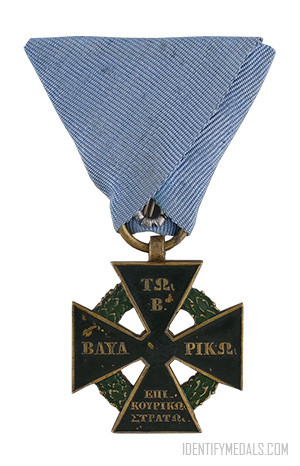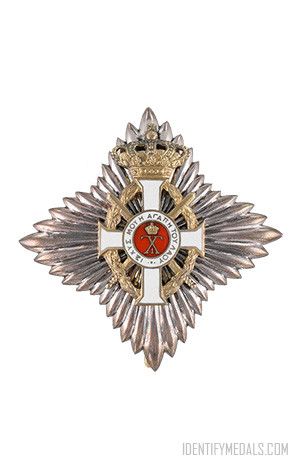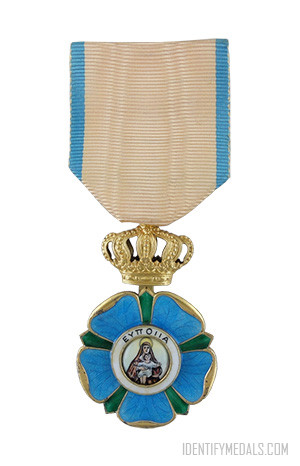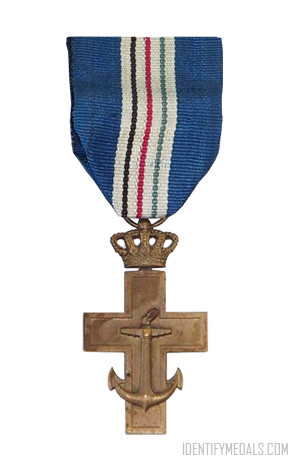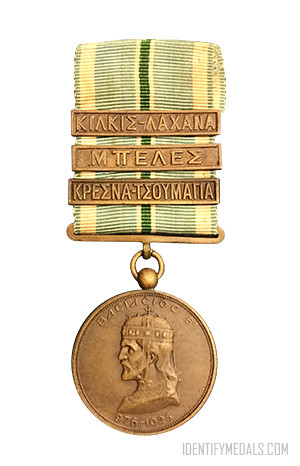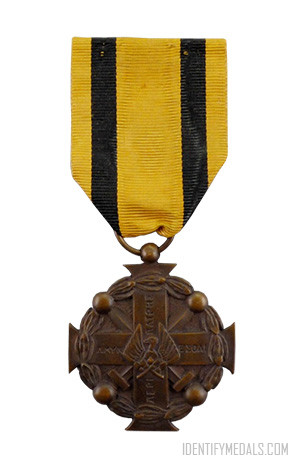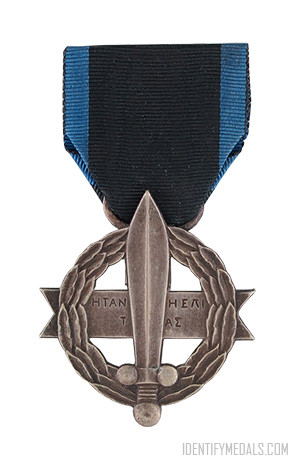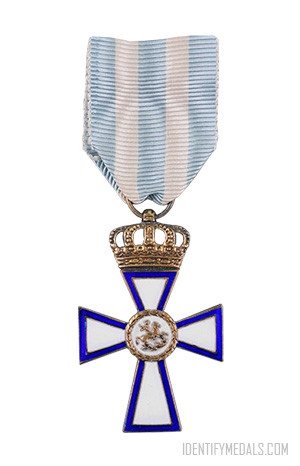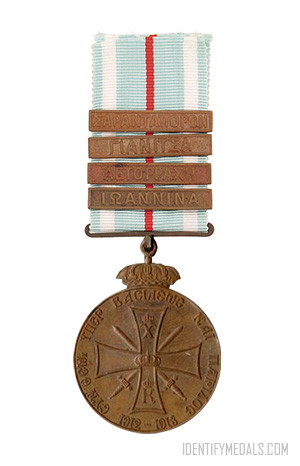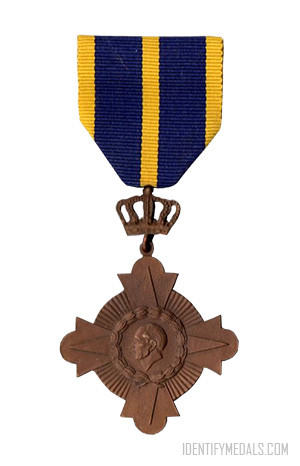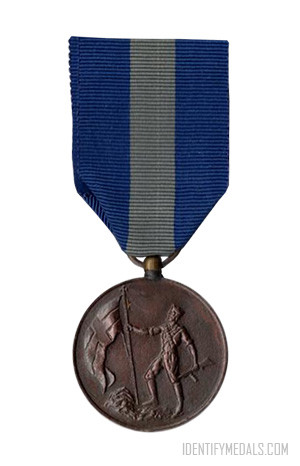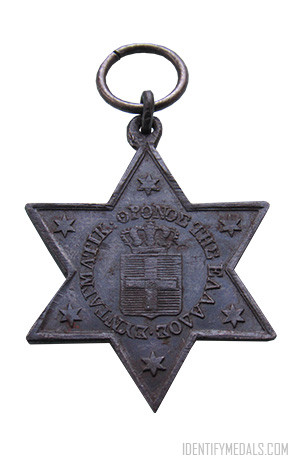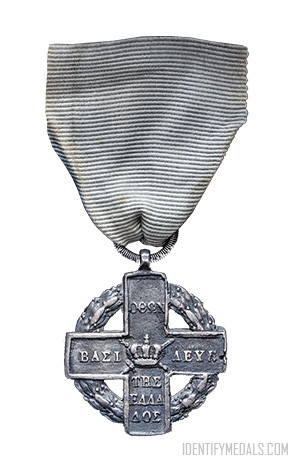The Cross of the Bavarian Auxiliary Corps medal was created on November 22, 1833 and awarded to 3582 members of the Bavarian Auxiliary Corps who escorted King Otho I (the young Prince Otho of Bavaria) from his native Bavaria to Greece in that same year.
The Royal Bavarian Auxiliary Corps (or Β. Βαυαρικό Επικουρικό Σώμα in Greek, Kgl. Bayerisches Hilfskorps in German) was a Bavarian Army expeditionary force established in 1832 to accompany Prince Otto as the first king of independent Greece in 1833, to serve as a military force and enforce order until a native military could be established. It replaced the forces maintained there by the Great Powers—chiefly the French troops of the Morea Expedition—as well as the remnants of the Greek forces organized during the Greek War of Independence.
Most of the Bavarians left by 1837, but many remained behind, dominating the Greek army and the administration. This “Bavarocracy” (Βαυαροκρατία) provoked great resentment from the Greeks, and was one of the chief causes of the 3 September 1843 Revolution. Many Bavarians remained behind in Greece and became Greek citizens.
The Cross for the Bavarian Auxiliary Corps Design
The bronze and lacquer Cross features an obverse inscription that translates to “Othon King of the Hellenes,” and a reverse inscription that translates to “To the Royal Bavarian Auxiliary Corps.”
It measures 32.7mm x 37.5mm.

